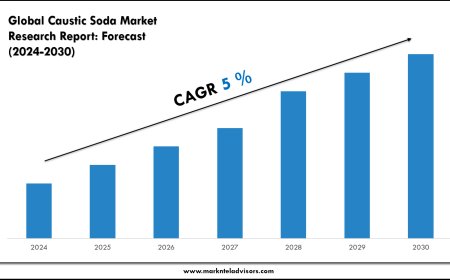Cash for Cars and the Circular Economy: A Greener Drive Ahead

The world is shifting toward sustainable practices across all sectors. One area experiencing significant change is the automotive industry, particularly in how we handle end-of-life vehicles. The growing interest in the circular economy model has brought fresh attention to old cars and how they are recycled or reused rather than being dumped in landfills. The cash-for-cars process plays an important role in this transformation.
What Is the Circular Economy?
The circular economy is a system designed to minimise waste and extend the use of materials for as long as possible. It focuses on reuse, recycling, repair, and remanufacturing, rather than creating more waste through the 'take-make-dispose' method.
This model helps to lower pollution, protect natural resources, and reduce the pressure on the environment. In simple words, rather than throwing old things away, we give them a second life.
Why Cars Fit Into This Model
Cars contain many materials, such as steel, aluminium, copper, rubber, plastic, and glass. Most of these can be recycled or repurposed. Instead of sending old cars to landfills, the circular model encourages taking them apart and using their parts in different ways.
When a car is no longer useful, it does not mean every part of it is waste. The tyres can be turned into road materials, the engine can be reconditioned, and the metal body can be melted and reshaped. This approach reduces the demand for raw materials and lowers the energy used in manufacturing.
How Cash for Cars Supports the Circular Economy
Cash for cars services offer money to people who want to get rid of their old or damaged vehicles. These companies collect the cars and send them to wrecking yards where they are dismantled and sorted. Parts that are still working are sold for reuse, while scrap materials are recycled.
This process helps stop thousands of vehicles from rusting in backyards or being illegally dumped. It also helps reduce illegal dismantling, which can leak harmful fluids, such as oil and coolant, into the soil and water.
According to the International Energy Agency, recycling one tonne of steel saves nearly 1.5 tonnes of carbon dioxide emissions. With approximately 12 million vehicles reaching the end of their life globally every year, proper handling of cars can significantly reduce environmental harm.
Common Materials Recovered from Old Cars
- Steel and Iron: Used in construction and manufacturing.
- Plastic: Cleaned and melted for new uses.
- Glass: Reused in car windows or bottles.
- Rubber: Turned into flooring or playground materials.
- Batteries: Lead is removed and reused; harmful acids are neutralised.
Each recovered part reduces the need to mine and produce new materials. It also supports industries that rely on raw materials but aim to lower their carbon footprint.
The Role of Car Owners
You might think your old car has no use. However, entrusting it to a reputable cash-for-cars service helps keep the cycle going. It saves space, avoids pollution, and adds to a growing system of reuse.
When people choose to sell their old cars instead of letting them sit idle, they participate in a larger effort. This simple action contributes to global goals, such as the United Nations' Sustainable Development Goals, which promote responsible consumption and production.
Facts and Data That Matter
- According to the Australian Bureau of Statistics, over 90% of a car can be reused or recycled.
- The global automotive recycling industry saves approximately 85 million barrels of oil annually, based on the energy saved by recycling materials.
- In Australia, over 500,000 cars are scrapped annually, with most of them going through the cash-for-cars channel.
These numbers show that recycling vehicles is not only practical but also essential for the environment.
Cash for Cars and Junkyards in Melbourne: A Local Connection
Melbourne, like many growing cities, faces an increasing number of unused vehicles. Many car owners have older models parked in garages, driveways, or workshops that no longer run. This creates clutter and can lead to environmental damage if not managed properly.
This is where the cash for cars Melbourne market becomes important. Companies like Best Cash for Cars offer a service where unwanted vehicles are picked up, taken to licensed wrecking yards, and processed in a way that aligns with the circular economy. They ensure that useful parts are removed and repurposed, and the rest is recycled safely. Their work supports cleaner neighbourhoods and contributes to a greener future for Victoria.
If you are in Melbourne and own a vehicle that is no longer in use, choosing a company like Best Cash for Carz is a responsible step. You do not only clear up space but also play a role in creating a better cycle for materials.
Final Thoughts
The cash-for-cars process is more than just trading an old car for money. It is part of a broader shift in how we manage waste, utilise resources, and care for the environment. As the circular economy gains importance, the role of vehicle recycling and junkyards will continue to grow.
By choosing to recycle old cars, people help conserve resources, reduce pollution, and avoid the need to extract new materials. These small decisions have a significant impact when executed at scale.
Australia has an opportunity to lead in this area by promoting responsible choices and developing more effective systems for recycling. The next time you think of your old car as useless, rememberit might just be the start of something new.





































